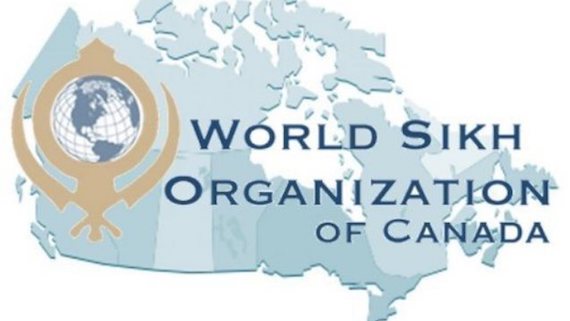Posts By Sikh Siyasat Bureau

Pakistan Conducts Air-strikes in Afghanistan; Taliban Claim to Have Conducted Retaliatory Hits
Pakistan has reportedly launched overnight air attacks inside Afghanistan, while the Taliban claimed hours later to have fired across the border.

Dal Khalsa to Punjab Govt: Arrest and Bring Ram Rahim to Punjab for Interrogation
In the wake of names of Dera Sacha Sauda chief Gurmeet Ram Rahim, who is already serving life sentence in a rape and murder case, and his girl friend Honeypreet came into limelight in a sacrilege case of 2015, the Dal Khalsa has asked the Punjab government to immediately bring both the criminals to Punjab on police remand for interrogation.

Police Crackdown on Sikh Activists Across Punjab Ahead of Gathering in Amritsar
Punjab police have launched a massive crackdown on Sikh activists ahead of Pathic Ekatarta (gathering) at Sri Amritsar today (17th of March).

Misl Satluj’s Instagram Handle Blocked in India
Social and political organization Misl Satluj’s Instagram handle is blocked in India.

Panth Sewak Personality Bhai Diljit Singh House Arrested
Punjab police has put Panth Sewak personality Bhai Diljit Singh under house arrest. A team of six police officials visited Bhai Diljit Singh's house today and informed him that the state government has decided to put him under house arrest.

Sikh Federation UK to Oppose the Classification of any Sikh Organizations as Extremist
“The new extremism definition about to be unveiled today in Parliament, on the Sikh New Year, will formalise the engagement ban that leading Sikh organisations that are critical of the Indian government have already experienced”, the Sikh Federation UK said in a written release.

Politics and Religion: Speech of Bhai Mandhir Singh (Panth Sewak Jatha Doaba) at Ghuman (Punjab)
Local Sangat held a Samagam at Village Ghuman (Amritsar) on 11 November 2023. Bhai Mandhir Singh shared his views on topics related to Sikhi, Khalsa Panth, Religion and Politics. This is video recording of speech of Bhai Mandhir Singh.

Current Situation in Punjab I About Marriage I Punjab I Dr Sewak Singh
The Family of Late S. Baljinder Singh, a Resident of Village Talwan, Teh-Phillaur (Jalandhar), on The Occasion of Their Son Kamaldeep Singh Marriage Organized a Discussion on The Current Situation in Punjab on 2 March 2024.

Quebec Court of Appeal Decision on Bill 21: WSO Expresses Disappointment
The World Sikh Organization of Canada (WSO) is deeply disappointed by the decision of the Court of Appeal of Quebec largely upholding Bill 21, Quebec's controversial secularism law. The WSO maintains that Bill 21 is a direct attack on religious freedom and will continue to fight this unjust law.

Canada Must Condemn India’s Violent Crackdown Against Farmers: BCGC & OGC Write to Canadian Foreign Minister
British Columbia Gurdwaras Council (BCGC) has written a letter to the Canadian Foreign Minister (copy available with Sikh Siyasat News) to raise concerns regarding paramilitary troop mobilization by India at the East-Punjab-Haryana state boundaries and the alleged repression of farmer activists.

Prof. Davinderpal Singh Bhullar Acquitted in 30 Years Old Case
A Ghaziabad court today acquitted Sikh Political Prisoner Prof. Devinderpal Singh Bhullar in a 1994 case. Prof. DPS Bhullar who is on parole attended the hearing in person at the Ghaziabad district court today along with his counsel Advocate Jaspal Singh Manjhpur. The court had reserved the case for verdict today.

Future by Understanding The Importance of Gurmukhi Script
SUS Panjab University Constituent College Guru Har Sahai organized a discussion on Punjabi language on 21 Feb 2024. Speaking during this discussion Dr. Sewak Singh shared his views about Importance of Script .

Subhkaran Singh (22) Died Fighting for Debt Waiver, Better Price; Family Debt of 10 Lakh Stands
A death underlines the small farmers’ struggle for fair income in a so-called Punjab of agricultural prosperity. Shubhkaran Singh, 22, leaves behind a family that had to sell off an acre of its 3.5-acre land to run the household and marry off its eldest daughter. He’s gone, while the loan waiver he fought for hasn’t come.

WSO Condemns Alleged Mistreatment of Sikh Detainees under NSA at Dibrugarh Jail
The World Sikh Organization of Canada (WSO) condemns the mistreatment and unjust detention of Sikh activists in Dibrugarh Jail, Assam.

Youth Murdered in Offensive Firing by State Forces at Khanauri Barrier: Eyewitnesses
Farmer leader, Baldev Singh Sirsa, confirmed today that a 21-year old activist was murdered by police bullets at Khanauri today.

Farmers Protest 2.0: All That What You Need to Know? A Special Report by Sikh Siyasat
Punjab and Haryana Farmers are on roads again moving towards Delhi to press the government to fulfill their demands. This special report explores the ground situation to understand why farmers are protesting again.

Root Causes Behind Water Pollution in and Around Ludhiana? Why Laws are not being Implemented?
A groups discussion on "Rejuvenation of Drainage System in Punjab" at Guru Nanak Engineering College, Ludhiana on 8 February 2023.

Rejuvenation of Drainage System in Punjab | Group Discussion Held at GNE, Ludhiana
A groups discussion on "Rejuvenation of Drainage System in Punjab" at Guru Nanak Engineering College, Ludhiana on 8 February 2023.

Mastuana Sahib Jorr Mela 2024 Documentary
An annual Jorr Mela takes place at Mastuana Sahib from 30 January to 1 February every year in the memory of Sant Attar Singh Mastuana.

Characterization Through Songs | Punjabi | Songs | Dr Sewak Singh
Gurmat Held a Seminar 24/12/2023 Dr Sewak Singh shared his views about Words. This is video recording of speech of Dr Sewak Singh.
« Previous Page — Next Page »








